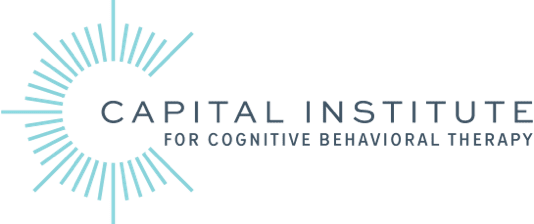Testing & Assessment
Capital Institute offers comprehensive testing and assessment services for children and adolescents for a wide range of presenting concerns. Our evaluations focus on assessment of cognition (or intellectual abilities), learning and memory, academic achievement, social and emotional functioning, adaptive functioning, and executive functioning. Our assessments can provide diagnostic clarity for a range of issues, including:
- Learning Disabilities and Other Academic or Classroom Concerns
- Attention Deficit Hyperactivity Disorder (ADHD)
- Autism Spectrum Disorder
- Behavioral Difficulties
- Social and Emotional Functioning
- College Preparedness
- School Admissions Testing
- General Diagnostic Clarification
The goal of a testing and assessments is to enhance a child’s ability to be as successful as possible. As such, each assessment is uniquely tailored to your child’s needs so that we can adequately address the referral question

What is the Purpose?
The results of our evaluations are used to help families decide how to best meet the educational needs of their child in the child’s school setting, and to help parents make decisions about school placement/admission. Additionally, evaluation results can help support whether accommodations are necessary for standardized testing including the:
- High School Placement Test (HSPT)
- Scholastic Aptitude Test (SAT)
- ACT College Readiness Test
- Graduate Record Examination (GRE)
Our psychologists will provide diagnostic clarity and treatment recommendations through observations, clinical interviews, record review, collateral information gathering, and psychological testing.

What Tests are Performed?
This will depend on the referral question and can be specified during the intake. In general, we have access to several tests including:
- WPPSI-IV
- WISC-V
- WAIS-IV
- WJ-IV
- Conners CPT-3
- DKEFS
- CTOPP-2
- GORT-5
- KeyMath-3
- CELF-5
- TOWL-4
- MIGDAS-2

What to Expect:
The amount of time an evaluation takes varies based on your child’s presenting concerns and the extent of testing required. During the testing process, your psychologist will provide a 90-minute initial clinical interview to gather background information and learn more about the presenting problems that are affecting your child. Information is also typically gathered from teachers and other individuals involved in the day-to-day life of the child. Subsequently, a testing protocol will be recommended to assess the presenting concern further.
Testing usually takes place over the course of 1-2 full days. Once testing has been completed and all collateral information reviewed, the psychologist will write a full psychological report explaining the findings and providing treatment recommendations. Following testing, we conduct a feedback session to review the results of the assessments and explain our recommendations.

Preparing your Child:
Your child will be asked to participate in a series of tasks that assess their cognitive and language development as well as visual perceptual/visual-motor abilities. There is no preparation or practice needed ahead of time. To help prepare your child for their testing day, encourage a good night’s rest, be sure to eat breakfast, and bring a small snack and water/juice they can have during a break.
When discussing the appointment with your child, you should tell them they will be coming to the office to do “activities,” such as putting blocks together and looking at pictures. If your child wears glasses in school, please have him/her wear them for testing. Additionally, medication should be taken just as on a regular school day.

Need Help with Admissions Testing?
If you are considering enrolling your child in an independent school in the Washington, D.C. metro area and Bethesda, MD area, they may be required to complete admissions testing. Learn more about our Admissions testing service and process.

